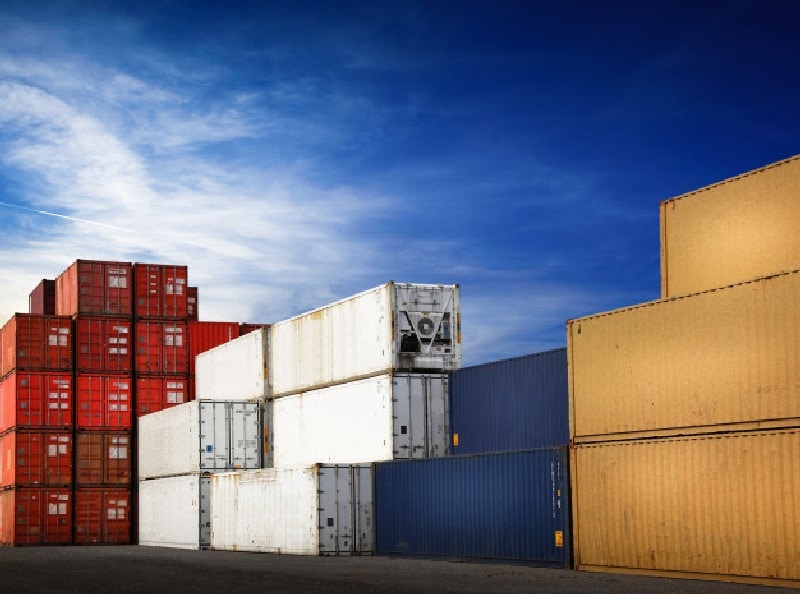Freight forwarding is the transportation of commodities from one location to another via train, ship, air, or roadway. It serves as an intermediate, providing logistical services to convey cargo and managing the appropriate shipping process through a logistics network entire of third parties and shipping routes.
If you are a retailer, distributor, or manufacturer, freighting can be the key to your supply chain success. By choosing an experienced and dependable freight forwarder, you can ensure that your goods are delivered on time and under budget while adhering to all applicable customs requirements and procedures. Streamlining this process is critical to obtaining success!
Key Takeaways
- Freight forwarding transfers products via rail, ship, air, or highway carriers.
- It serves as an intermediate, overseeing the logistics and shipping processes via a network of third parties and routes.
- Choosing an experienced and dependable freight forwarder ensures timely delivery, budget adherence, and customs compliance.
- Streamlining the freight forwarding process is critical to the supply chain success of retailers, distributors, and manufacturers.
Table of Contents
What is a Freight Forwarder?
A freight forwarder is a corporation that operates as a middleman between the sender and receiver of goods. It specializes in routing freight consolidation, shipping mode scheduling, cargo insurance, and freight shipment monitoring. Freight forwarders are critical to ensuring that goods are delivered on time from one location to another.
Freight forwarders offer various services, including designing customs shipping documents, processing customs documentation and clearance paperwork, securely packing the freight for shipment, determining which freight forwarders provide the most cost-effective solution based on your requirements, and providing continuous support during transit.
To better understand the freight forwarding process, study the following examples:
Examples of Freight Forwarding
- Air freighting: It is the speediest and most dependable method of freighting when you are in a rush. Such international freight forwarders necessitate meticulous shipment handling and transportation to guarantee on-time delivery.
- Marine freighting: Maritime transportation might be the perfect option if your shipment is too large to be handled via air freight. International ocean freight forwarders allow companies to transport their goods by water, alleviating the process.
- Rail freighting: Rail freight forwarders are the most economical option than air freighting when transporting goods over long distances.
- Road freighting: When prompt delivery is crucial, road freighting is the best option. It’s the fastest way to move goods and ensure they arrive on time.
What does a freight forwarder do?
Companies hire freight forwarders to move their goods from one place to another by working with storage sites, transportation companies, and other logistics companies. At their core, they give their customers a reliable and affordable way to move things worldwide and locally. This is part of the job:
- Putting together the necessary papers for importing or exporting goods
- Finding the right transportation companies to get the things to where they need to go
- they are talking about paying their clients’ freight costs
- Combining freight to cut down on the number of packages
- In charge of the inventory and the processes of warehousing and transportation
- Putting in insurance claims in case something goes wrong
What are the key stages of freight forwarding?
It revolves around the following stages:
1. Export haulage
Export haulage is a critical initial step of freighting for international and domestic freight shipments. It involves transportation companies moving goods from the exporter’s location to the forwarder’s warehouse.
2. Export customs clearance
Before a product can reach foreign shores, customs agents in the item’s country of origin must approve it. Agents inspect the actual merchandise and accompanying customs documentation to ensure they match up.
3. Items checkpoint
Items checkpoint, or origin handling, happens when the receiving team offloads the items from shipping containers to storage. This process entails inspecting products to ensure they arrive undamaged and are according to the order paperwork.
When shipping goods internationally, it is essential to be aware of any potential restrictions or regulations that may apply. Some items (flammable liquids, drugs, alcohol, perishable items, dangerous items, etc) have more stringent limitations on shipping internationally than others, so it’s best to check the requirements beforehand.
4. Import customs clearance
Upon the shipment reaching its destination, authorities thoroughly inspect the documents provided by freight forwarders to make sure they match up with their contents. Additionally, they verify that the product adheres to all legal regulations for entry into their nation.
5. Destination arrival and handling
Once customs have cleared the shipment, the freight forwarders take over the logistics processes and arrange for a transportation company to cart the product to its destination. Along with this comes paperwork that could include invoices, certificates of origin, bill of lading certificates, inspection certificates, export packing lists, etc.
6. Import haulage
When the item has reached its ultimate destination from the import warehouse, most freight forwarders refer to this final phase as “import haulage.” The chosen method of transport may be one or more shipping modes, depending on product type and distance. As with export hauling, freight forwarders carefully consider each option before selecting when it comes to the last stage in their process.
Functions of Freight Forwarding
The objective of a freight forwarder is to successfully bring the cargo from the supplier to the customer by the given date, and that is undamaged. The primary function of a freight forwarder is as follows:
1. Packaging
One of the freight forwarder’s most common tasks is preparing goods for export by effectively packaging them. The job is more challenging than it sounds because numerous countries are stringent in packaging and have specific rules that they must adhere to.
The packaging depends on the final destination; hence, the freight forwarder must comply with the regulations set up by that country. Sometimes, extreme care is essential, as the cargo is loaded and unloaded several times, and there is a risk of damage.
It is the function of a freight forwarder to know about the environmental condition of the final destination of the goods because they might be transported from one extreme condition to another, for instance, from a hot place to a colder region.
Packaging is crucial in such circumstances so the item remains in perfect condition. The freight forwarder must also remember that lightweight packaging is required for air-shipped items to keep their weight and transport costs down.
2. Labeling
Labeling is as essential as packaging because it will not reach its destination until and unless you label an item. The chance of errors increases when the goods are not appropriately labeled. It is the freight forwarder whose function is to label the cargo with the following correct information:
- Details about the port of entry
- Country of origin
- Whether the item is hazardous
- Weight in kilograms and pounds
- List of products
- Details in the language of the destination country
3. Documentation
The most essential function of a freight forwarder is in overseeing the documentation details because it is a complex process where you have to pay detailed attention to every detail. The documentation requires specialist knowledge that may include the following information
- Bill of landing: A Bill of Landing or BOL is a contract written between the owner and the carrier of the goods because the customer needs an original document as proof of ownership to take possession of the goods.
- COO or Certificate of Origin: It is a signed document stating the origin of the item to be exported
- Commercial invoice: The commercial invoice is a bill for the goods and is given by the seller to the buyer and is used in determining its actual value for customs duty
- Inspection certificate:It is an important document that states whether the goods have been inspected and whether the quality is acceptable.
- Export license: This is a government document authorizing the export of goods to a particular destination in specific quantities and weights.
- Shipper’s Export Declaration or SED: The document includes export statistics and is prepared by the US Postal Service for goods of more than 500 dollars in value
- Export Packing List: This is the packing list with details about each item, the type of packaging container, its measurements, and gross weight.
The Principles of Freight Forwarding
International trade relies on freight forwarding to deliver goods quickly through intricate and sometimes murky waterways. Here are its fundamentals:
- Transit Efficiency: Freight forwarding’s main goal is to create a smooth thread connecting markets across borders. Like a skillful navigator navigating difficult seas, your products should move quickly via transit points.
- Cost-Effectiveness: Freight forwarding involves balancing fast delivery and cost. You do not want costs to soar or items to travel the world before arriving.
- Maintaining Quality: As they travel, your goods should look like they just left the showroom. The wine glasses must travel from Venice to Vermont without becoming a jigsaw puzzle.
- Rules and Negotiations: A forwarder without negotiation skills is like a captain without a compass. They must know how tariffs change and manage customs like a diplomat.
- Your freight forwarder should arrange the transfer like a great conductor, orchestrating faultless transitions from sea to rail to air to land, whether your goods need airplane wings or truck wheels.
- Management of Risk and Benefit Good forwarders guarantee that advantages outweigh dangers in the continuing risk-reward battle. It defends your shipment from loss, damage, and delay.
- Using IT Modern freight forwarding uses advanced IT systems to forecast, track, and manage shipments like a meteorologist.
Freight Forwarders vs Freight Brokers
About Freight Brokers
Freight brokers are essential liaisons between carriers and shippers. They find the most cost-effective rate for their customers through a network of trucking companies, freight forwarders, and ocean carriers. They are not involved in taking responsibility or possession of the freight.
About Freight Forwarders
With abundant knowledge and experience in the freight industry, freight forwarders are experts at coordinating transportation from point A to point B. From international shipping to customs clearances, they provide comprehensive services that guarantee safe and timely door-to-door delivery for all your cargo needs. In contrast to freight brokers, freight forwarders are held accountable for moving goods and accepting possession. Furthermore, they provide advanced services such as packaging, storage, inventory management, and documentation assistance – surpassing what a freight broker can do.
Industries that use freight forwarders
Many businesses that handle complicated foreign shipping and logistics depend on freight forwarding agent services. These services are beneficial for
- Making Things Industrial
- Medical and Health Care Industry Health and Wellness
- Building and developing online stores
For these businesses to effectively handle their shipping needs, they mostly need expert global logistics and the help of freight forwarders. In this way, they can focus on improving their general performance and making more money.
Some known Freight Forwarding Companies
Numerous freight forwarding companies have made a name for themselves globally. Some are popular because of their high rankings in terms of cargo volume. In contrast, others have climbed to the top of the list because of international logistics services and impressive revenue figures.
Operational efficiencies, paperless operations, and digitalization have helped most ocean freight forwarder companies reach the top positions in this sector. Some of the top freight forwarders of the year 2019 are-
- Roland Berger
- DHL Global Forwarding
- Brink’s Global Services
- Forward Air
- Inchcape Shipping Services
- CMA-CGM Adelaide
- Crown Relocations
- TNT Express
- Alaska Air Forwarding
- FedEx Office Print & Ship Center
- Pak Mail Centers of America, Inc
- World Courier
- DHL Express
- Navis Pack & Ship
- Craters & Freighters National
- Acme Truck Line
- Universal Logistics Holdings
- Royal Freight, L.P.
- Broomfield AIM Mail Center
- Qube Ports & Bulk
Pros and Cons of Freight Forwarding
Advantages:
- Shipping worldwide can be a budget-friendly option for reducing freight costs while ensuring your cargo is delivered promptly.
- With such services, you can benefit from global freight networks and ensure your freight is delivered safely at cost-effective prices.
- It can help you efficiently manage paperwork and customs clearance and meet all international freight regulations.
- Utilizing freighting services can avoid delays and losses that are often associated with international shipping, as these companies specialize in freight logistics.
Disadvantages:
- Picking the right freight forwarding service can be tricky. You could find yourself unwillingly paying hidden fees or contending with unreliable services.
- If you’re seeking a reliable service level agreement, freight forwarders may lack the experience or know-how to fulfill your needs when it comes to freight logistics.
- You can incur extra costs, such as customs clearance fees and fuel surcharges, which could significantly raise the total cost of your trip.
- Depending on the freight forwarders’ policies, if your cargo is mislaid or held up, you may be responsible for some of the costs of this incident.
Conclusion
In the end, freight forwarding meaning can be summarized in the following bullet points –
- Freight forwarding is a method of managing and transporting cargo by air, land, or sea, ensuring it securely reaches its final destination.
- Freight forwarding services involve various services that must be managed effectively, from organizing transport to tracking cargo and handling documentation.
- Manufacturers can save significant money on costs and time by taking advantage of freight forwarders’ adeptness in global cargo transport. This guarantees that shipments are made with optimal proficiency and efficiency.
Liked this post? Check out the complete series on Marketing


